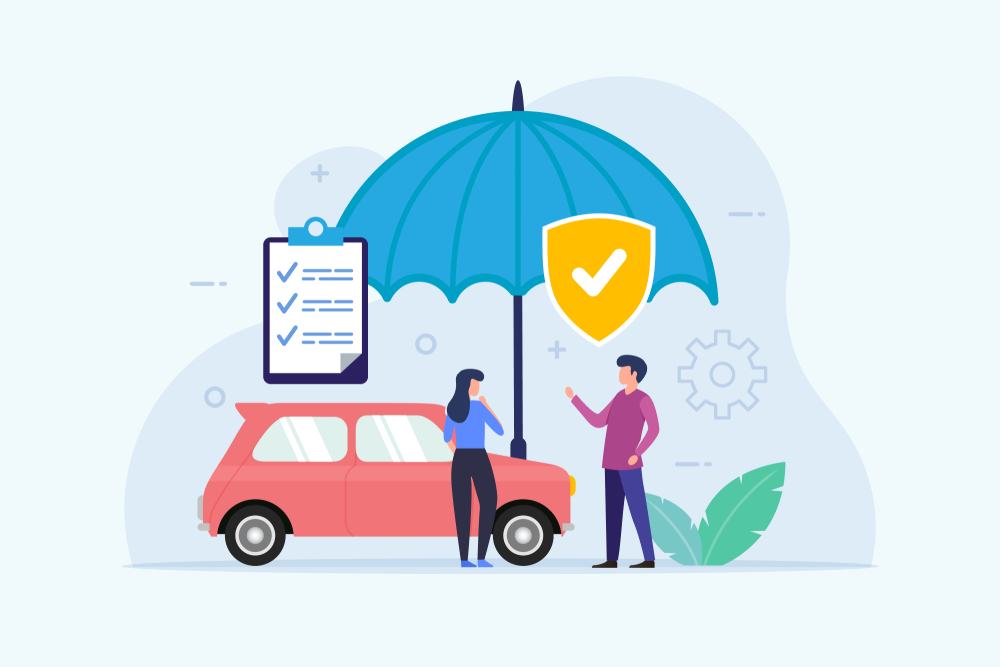Car insurance is a contract between an insurance company and a car owner in which the automobile owner pays premiums and the insurance company covers loss or damage to the car. Car insurance is required in India, regardless of whether the car is business or personal.
If you are purchasing a vehicle for the first time, selecting an insurance coverage might be difficult. Here are a few pointers to help you through the process. Continue reading to learn more.
Buying a new automobile is a major step for many people. It is a vital aspect of one’s life, and it is critical to safeguard the vehicle by selecting the appropriate auto insurance coverage. If you are purchasing a vehicle for the first time, selecting an insurance coverage might be difficult. Here are a few pointers to help you through the process.
Understand the Various Types of Automobile Insurance Policies
Third-Party Insurance — This automobile insurance coverage is required by the Motor Vehicles Act of 1988 and protects you against liability resulting from an accident involving a third-party person or property. Driving without appropriate third-party insurance may result in hefty fines or imprisonment.
Own Damage Insurance – This is an insurance that protects the insured vehicle against damage. This policy will not sufficient since third-party is required. A separate third-party insurance policy must be purchased.
Policy on private car packages – A comprehensive automobile insurance policy provides you with full coverage. It covers not only the expenses of damage to a third party, but also the costs of damage to your automobile. This insurance type also includes coverage for automobile theft and damage caused by fire, burglary, and natural catastrophes.
Comprehensive insurance – Comprehensive insurance offers coverage for personal damages, complete loss or damage to the covered vehicle caused by theft, explosion, fire, natural disasters, and so on, as well as third-party liability protection. This is an all-inclusive coverage that covers everything for a single fee.
Recognize Your Insurance Requirements
Vehicle Purpose – Before selecting insurance coverage, consider the vehicle’s usage and purpose. If you rely heavily on your automobile and drive through congested areas on a daily basis, you may want more coverage.
Financial Affordability – The insurance coverage has a direct impact on the insurance premium that must be paid. It is preferable to be underinsured or underinsured.
Online Product Comparison
There are several insurance companies accessible nowadays, and selecting the most dependable and effective insurance company may be difficult. These insurance firms’ official websites may be visited, or information about them can be found on insurance comparison websites. Policies should be compared based on a variety of criteria including as coverage, claim settlement, supplementary benefits, and so on. To obtain a better sense of the insurance firm, check client evaluations and comments.
Select the Appropriate Add-Ons
By paying an additional premium, more coverage may be added to the policy to improve its coverage. Zero-depreciation insurance, return to invoice, engine protection cover, roadside assistance cover, consumables cover, and more options are available. Because each add-on incurs an extra expense, it is critical to choose just those that are required.
Understand Insurance Terminology
Because of the vocabulary employed, it is easy to get confused while purchasing insurance. It is essential to understand several insurance phrases that have an impact on the policy’s performance. Here are a few such examples:
IDV — This stands for Insured Declared Value, and it is the entire amount that the policyholder will get if the automobile is totaled or damaged. The IDV has a direct impact on the premium that must be paid.
Deductibles – There are two sorts of deductibles that must be paid: mandatory deductibles and optional deductibles. A mandatory deductible is a set sum that must be paid in order to file an insurance claim. A voluntary deductible is a sum that policyholders may pay if they are ready to bear part of the financial load.
NCB – No Claim Bonus is a discount granted at the time of renewing vehicle insurance for going a year without filing a claim. One can get up to a 50% discount on their insurance premium.
READ ALSO: What One Should Keep In Mind While Buying Life Insurance Policies
Understand a policy’s exclusions.
It is critical to understand what the insurance coverage does not cover. Many instances, such as damage due to war or loss outside of geographical boundaries, will be rejected by the insurer. It is preferable to be informed of all of these conditions before purchasing a plan.
Because of technological advancements and the rise of new-age insurance businesses, understanding insurance in today’s day and age is straightforward. Before purchasing a vehicle insurance policy, make sure you understand the includes and exclusions and read the terms and conditions.


